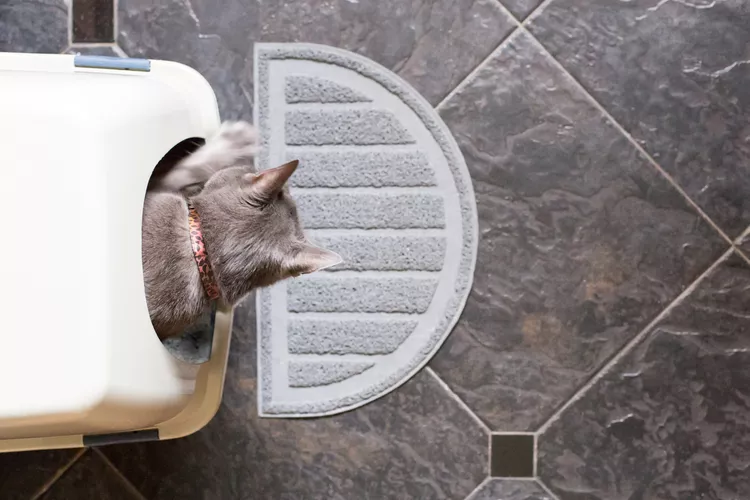
Senior cat litter box problems happen all too often and aren't necessarily a reflection of the cat's previous habits. Maybe your older cat is now peeing everywhere or just stopped using its litter box altogether. Whether your cat failed to learn faithful toilet etiquette as a kitten or simply developed litter box problems as it got older, such issues are common with advancing age.
Some senior felines never have any litter box problems. But it's good to be proactive and learn the warning signs in case any issues arise that lead to potential toilet challenges with your cat. Your elderly cat may have litter box problems because there are major changes in its schedule, routine, or environment. Perhaps it's become finicky with age, or it has a medical issue. Here are tips to help you understand and tackle your older cat's litter box challenges.
A medical issue may be the cause of your older cat's problem with using its litter box. Whenever your cat's elimination habits suddenly change for the worse, take it to the vet to rule out any underlying medical conditions or to assess treatment options. Here are some possible underlying health reasons why your older cat has stopped using the litter box:
Your aging cat may have developed feline cognitive dysfunction (FCD), which is a form of cognitive decline characterized by such symptoms as deterioration in memory, sight, hearing, and ability to learn. Some older cats with cognitive decline, similar to dementia, will forget where to find the litter box and what to do when they get there. If your cat is diagnosed with cognitive decline, the vet may prescribe supplements and/or medication, such as an anti-anxiety drug, to help ease some of your kitty's anxieties and related issues. Here are more tips on how to help your older cat with litter box problems:
Cats are meticulous by nature and appreciate privacy. Senior felines, like some older people, become less patient and more particular as they age. Thus, a cat that may have easily tolerated a less-than-stellar litter box as a youngster may snub the box if it's not pristine or may seek other places to eliminate if disturbed during the process.
Avoid this by keeping the litter box immaculately clean, easily accessible, and in a private space. A low-traffic area—away from the cat's bed and food bowl—is ideal.
Older cats may lose bladder tone as they age or have other physical ailments that make it difficult for them to "hold it" long enough to run across the house or down the stairs without an accident. Make it easier for your cat by placing litter boxes on each floor of your home or at each end of the house.
A regular commercial litter box may be too tall for arthritic cats to climb in and out of. Since arthritis is common in older cats, it's important to have a litter box that's the right height. Because it may hurt the cat to get into the box, the sides should be low and easy to climb over, and there should be plenty of room to allow the cat to take its time in comfort.
If you want to make your cat a lower litter box, look for a plastic shirt-box-size storage container, use the lid of the container itself, or cut down the sides of a regular litter box. Aluminum disposable bakeware that's about the size of a roasting pan may work as well, and the height of the sides can be modified if necessary (just beware of any sharp edges). Add a stable ramp into the box if necessary.
Consider adding less litter inside the box. Having too much litter may make an arthritic cat feel unbalanced or fearful when it's trying to squat and balance while eliminating. In addition, experiment with different types of litter. Your cat may suddenly prefer a new type or brand of litter that's more comfortable, such as unscented, or clay versus clump, for example.

212 Hairless Cat Names For Your Beautifully Bald Feline
Discover the perfect name for your hairless cat with our list of over 200 creative and unique names. From quirky to classic, find a fitting choice for your beautifully bald feline companion.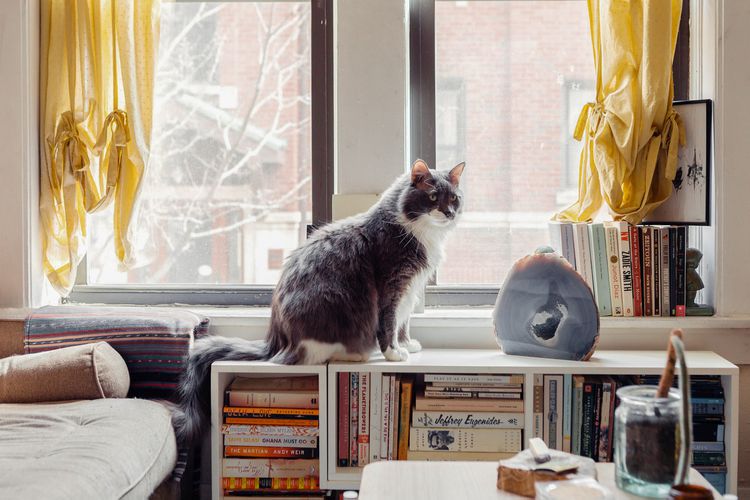
8 Things Your Cat Loves
Just like humans, cats can have a long list of things they like. Find out what cats love so you can keep your cat happy and healthy.
How to Tell If a Kitten is a Boy or a Girl
If you're wondering whether your new kitten is a boy or a girl, here are three ways to help determine the sex of your cat.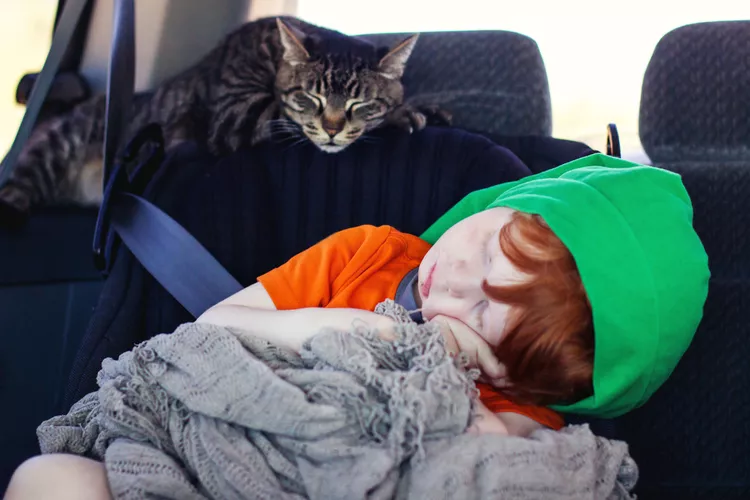
8 Tips to Help Cats Enjoy Car Travel
Cats are creatures of habit, and they hate to travel. Learn tips to prepare them for travel in the car, whether going to the vet or on vacation.
Common Causes of Mucus in Dog Poop
Seeing mucus in your dog's poop can be concerning to a dog owner. Here are common causes and treatment of mucus in a dog's stool.
Is Shrimp Bad For Dogs?
Shrimp can be a healthy, nutritional food for people but can dogs eat them, too? What are the main concerns with feeding shrimp to your dog?
Can Dogs Eat Grapes?
Are grapes safe for dogs? Grapes and raisins can cause serious toxicity in dogs. Find out what to do if your dog eats grapes.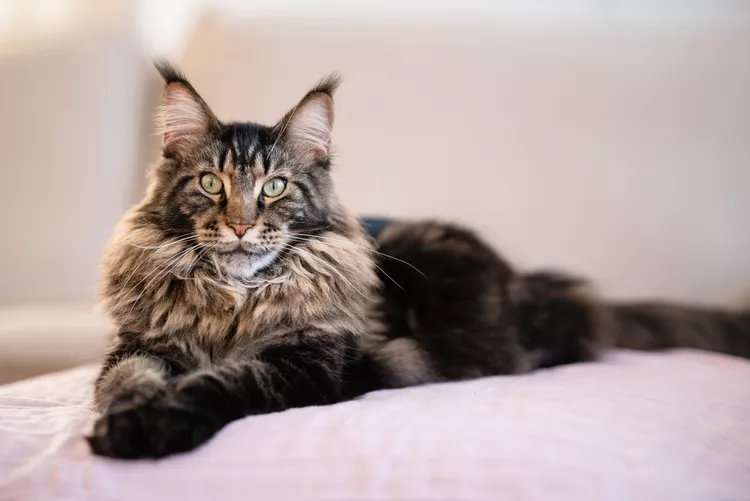
Maine Coon Cat: Breed Profile, Characteristics & Care
The Maine Coon cat is of the largest cat breeds in the world. These amiable, gentle cats make great companions. Learn about the Maine Coon cat breed's appearance, temperament, health, and care needs.
Selkirk Rex: Cat Breed Profile, Characteristics & Care
The Selkirk Rex is a charming cat with a tousled coat and a loving, laid-back personality. Learn about the Selkirk Rex breed.
How to Stop Your Cat From Chewing Electrical Cords
Cats are known to pounce and attack inanimate objects, like electrical cords. Learn how to prevent your cat from ambushing objects that may harm it.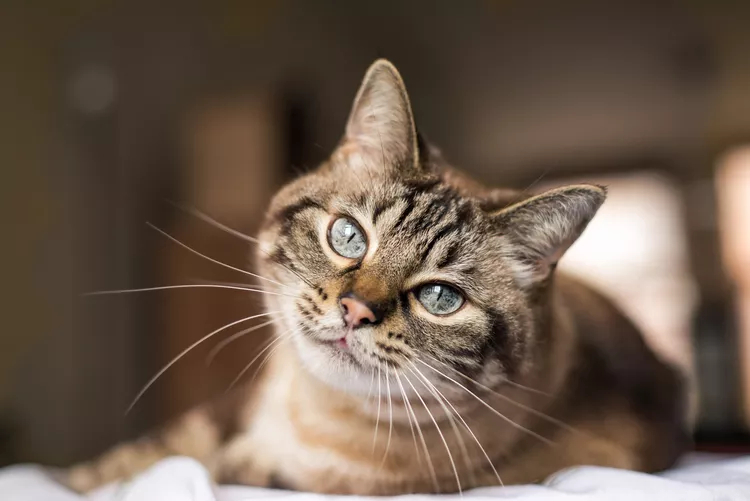
What Do Cats Think About?
Have you ever wondered what cats think about? A number of studies have explored cat behavior and feline cognition, but there's still more to learn.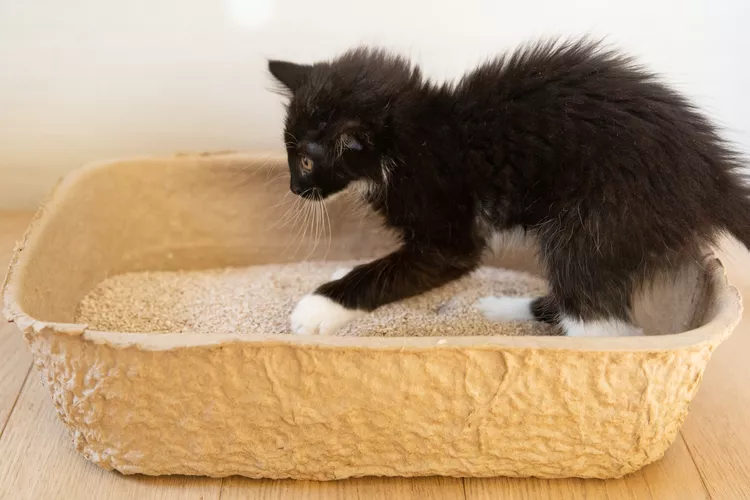
Training Your Kitten to Use the Litter Box
Bringing home a new kitten means they need to learn how to properly use a litter box. Discover how to successfully litter box train your kitten.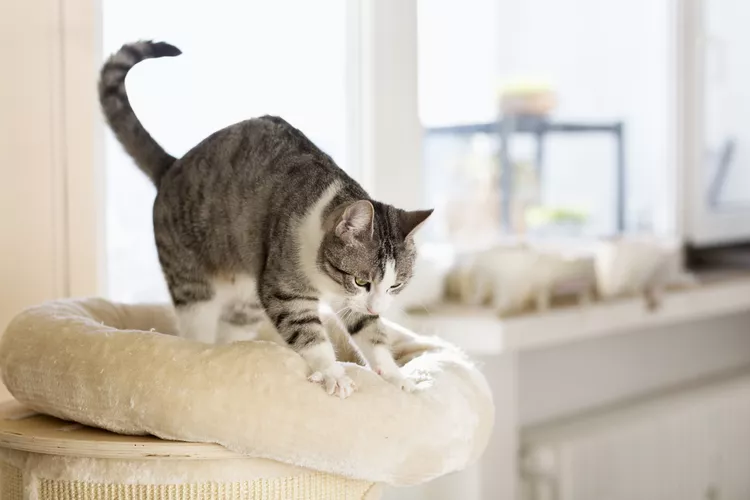
Why Do Cats Knead?
Kneading is a common behavior in cats of all ages. Learn why cats "make biscuits" and what it means for you, your cat, and all your blankets.
Dandie Dinmont Terrier: Dog Breed Characteristics & Care
Learn about the Dandie Dinmont Terrier, a silky dog breed with a signature puff of hair atop its head and a friendly, companionable personality.
Tibetan Mastiff: Dog Breed Characteristics & Care
Learn about the Tibetan mastiff, an ancient guardian dog breed. This breed is known for their massive stature, flowing mane, and protective personality.
4 Reasons Why Your Dog Licks Their Butt
Butt-licking in dogs can be a part of normal grooming, but excessive butt-licking is not normal. Read about the most common reasons for this behavior.
How to Teach Your Dog the "Leave It" Command
Training your dog the "leave it" command is a great way to instill self-control. Learn how to teach your dog to not pick things up from the ground.
How to Solve Your Dog's Fear of Car Rides
Is your dog scared of car rides? This fear of riding in cars is common. Learn why your dog is scared of car rides and how to help conquer this fear.
Can Dogs Get Depression? How to Help Your Sad Dog
Can dogs get depression? Learn about the signs of depression in dogs and find out how to help your sad dog.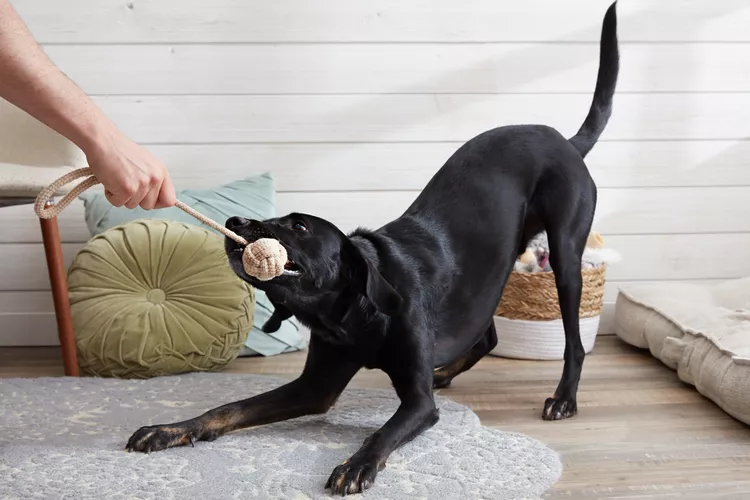
How to Play Tug of War With Your Dog
Many dogs love to play tug of war, and it's a healthy game that provides great exercise. Learn the best way to safely play tug of war with your dog.